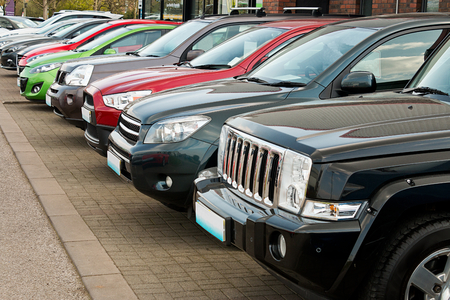Are you in the market for a used car, but are afraid of ending up with a clunker?
Just because a vehicle is not new, doesn’t mean it can’t be new to you: in fact, a reliable second-hand car can be a fine alternative to a high-priced new model. Here’s a step-by-step guide to help you achieve value-for-money with your purchase.
‘Near-new’ is a lot cheaper than ‘brand-new’
Looking for new-car quality without the new-car price tag? One or two-year-old cars might be just the thing.
Brand-new cars usually lose a large portion of their value shortly after the buyer drives off the lot. It doesn’t matter how many times you change the oil or wax it: the biggest decline in value happens right off the bat, and within the first couple of years.
By buying a vehicle soon after its initial depreciation, you can get a close-to-new car at a fraction of the cost. It’s not a secret, of course, but it’s something that many car buyers miss. And if you’re ready to get started, the government’s RightCar website is a great source for vehicle reviews, comparisons and ratings.
Pros and cons of private sale
The private-to-private sale is the most popular option among New Zealand car buyers, as it’s usually cheaper than buying from a dealer.
However, keep in mind that you’re only protected if you bought your used car through a dealer (or licensed Motor Vehicle Trader), while buying privately hardly gives you any warranties or guarantees at all. For example, by law the vehicle must have a WoF no older than one month at the time of sale, but if both the seller and buyer agree, the sale can still proceed even without a WoF. You’ll still need a current WoF though, if you plan to buy with finance.
In short, unless the car was intentionally misrepresented, any problems you may find with it after purchase will become your responsibility from day one. Getting a pre-purchase check is often the way to go if you want to minimise risks.
Is there a ‘best time’ to buy?
If you have decided to buy from a private seller, the answer is no: the private-sale market is always very active and you can find good (or bad) deals all year-round. But buying a used car from a dealer is a different matter. Experts recommend to aim for the end of the month, when car salespeople have targets to reach. Also, you may find better deals at the end of the quarter, namely March, June, September and December, when dealers usually want to maximise sales and are more open to negotiating.
Should you trade in your old car?
Once again, if you’re looking to get rid of your current car, you have two options: sell it privately or to a dealer. Both come with pros and cons.
Selling your old car to the dealer that you’re buying your next car from (commonly called ‘trade-in’) is usually very easy, and can save you plenty of time, hassle and negotiation. However, you may not get the money that you’re hoping for. Trading-in could be a good option if you’re time-poor and/or your car is in poor condition, has high mileage or is in low demand.
Selling privately can take up a lot of your time, including viewings and test-drives. But your efforts are more likely to be rewarded with a higher price.
What type of car do you need?
With so many makes, models and styles to choose from, settling on one car can quickly become quite a daunting decision. A good strategy is to focus on what you need, rather than what you want.
Do you need this car for a specific purpose - for example, family use in the city or long-distance driving? How often will you use it? How many seats, doors and additional features do you need?
Think about your day-to-day priorities. A four-wheel drive is great for the occasional weekend off-road trip, but it may not be as good (or cheap) for commuting.
What can you afford?
Working out a realistic budget is always a good starting point. Good deals come and go, but being able to seal one on your terms is all that matters.
If you’re looking for a car loan, you may be wondering how much you can afford. By using a car loan calculator, you can easily explore different scenarios and see how they fit into your budget.
But remember: purchase price and finance repayments are not the only cost involved in buying a car (new or used). Ongoing costs also include petrol consumption, WoF, ‘Rego’ (registration), Car Insurance, servicing, maintenance and repairs. Understanding all of the costs will help you set a spending threshold.
Disclaimer: Please note that the content provided in this article is intended as an overview and as general information only. While care is taken to ensure the content is correct, the information provided is subject to continuous change. Please use your discretion and seek independent guidance before making any decisions based on the information provided in this article.
